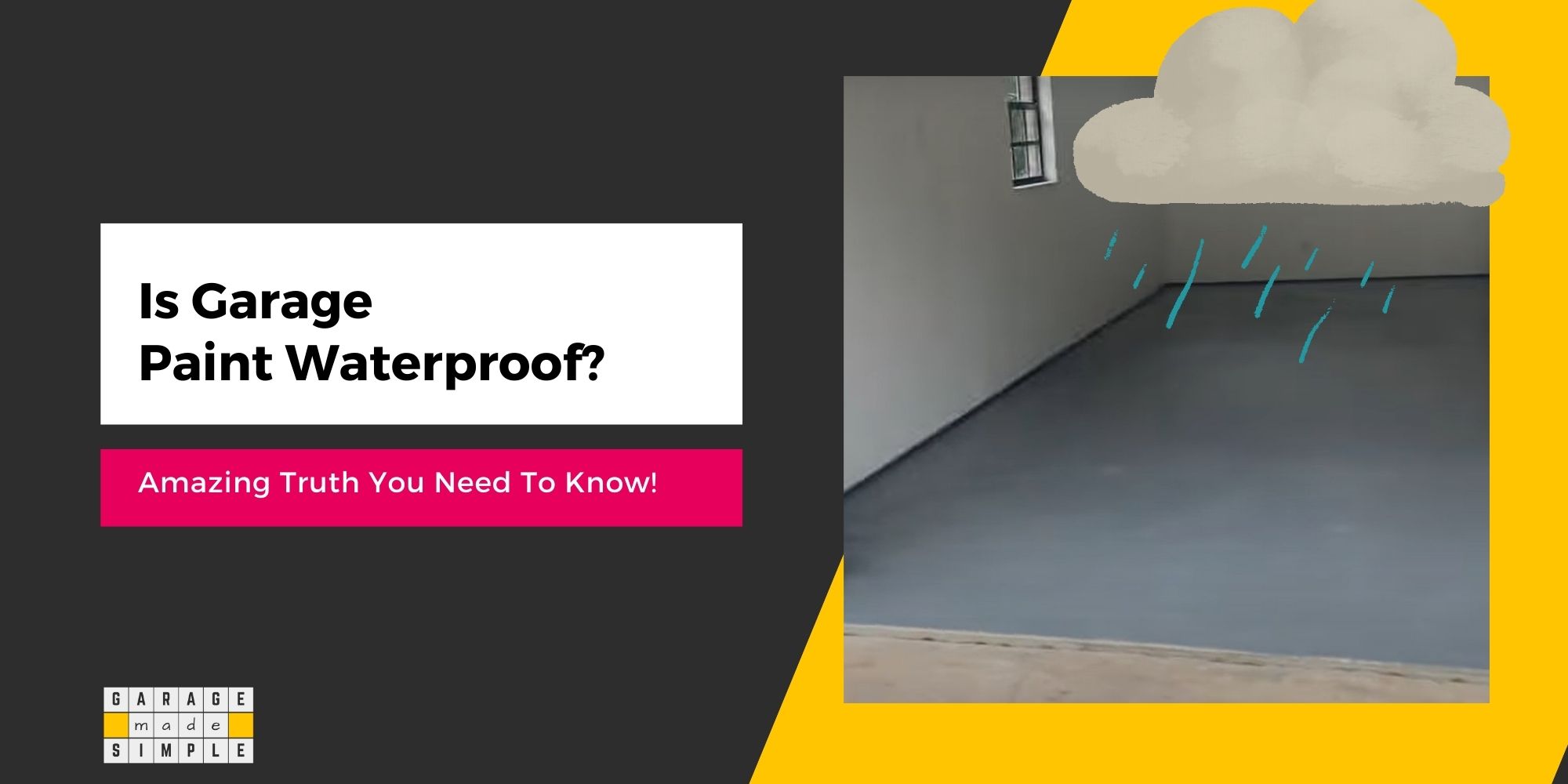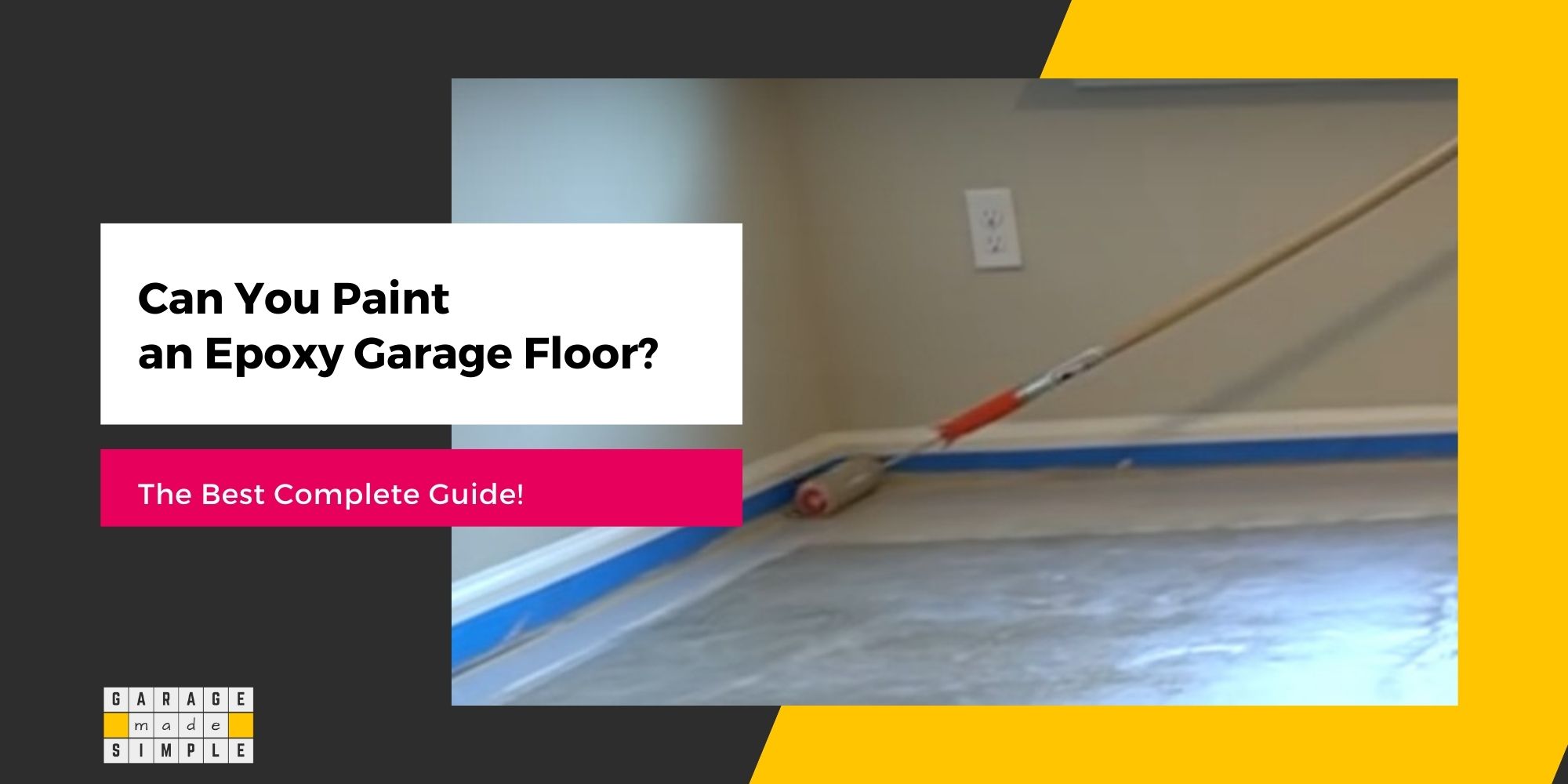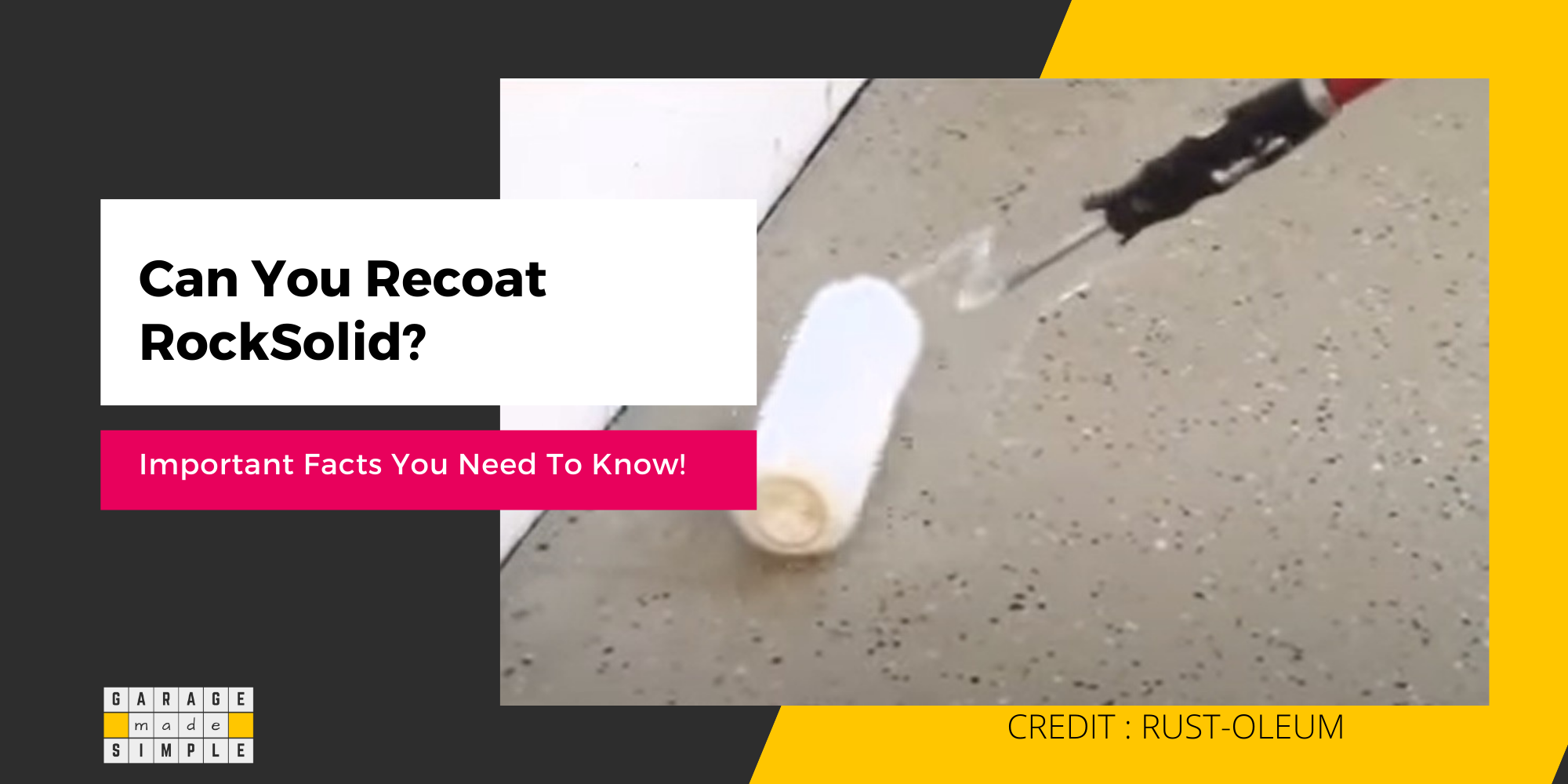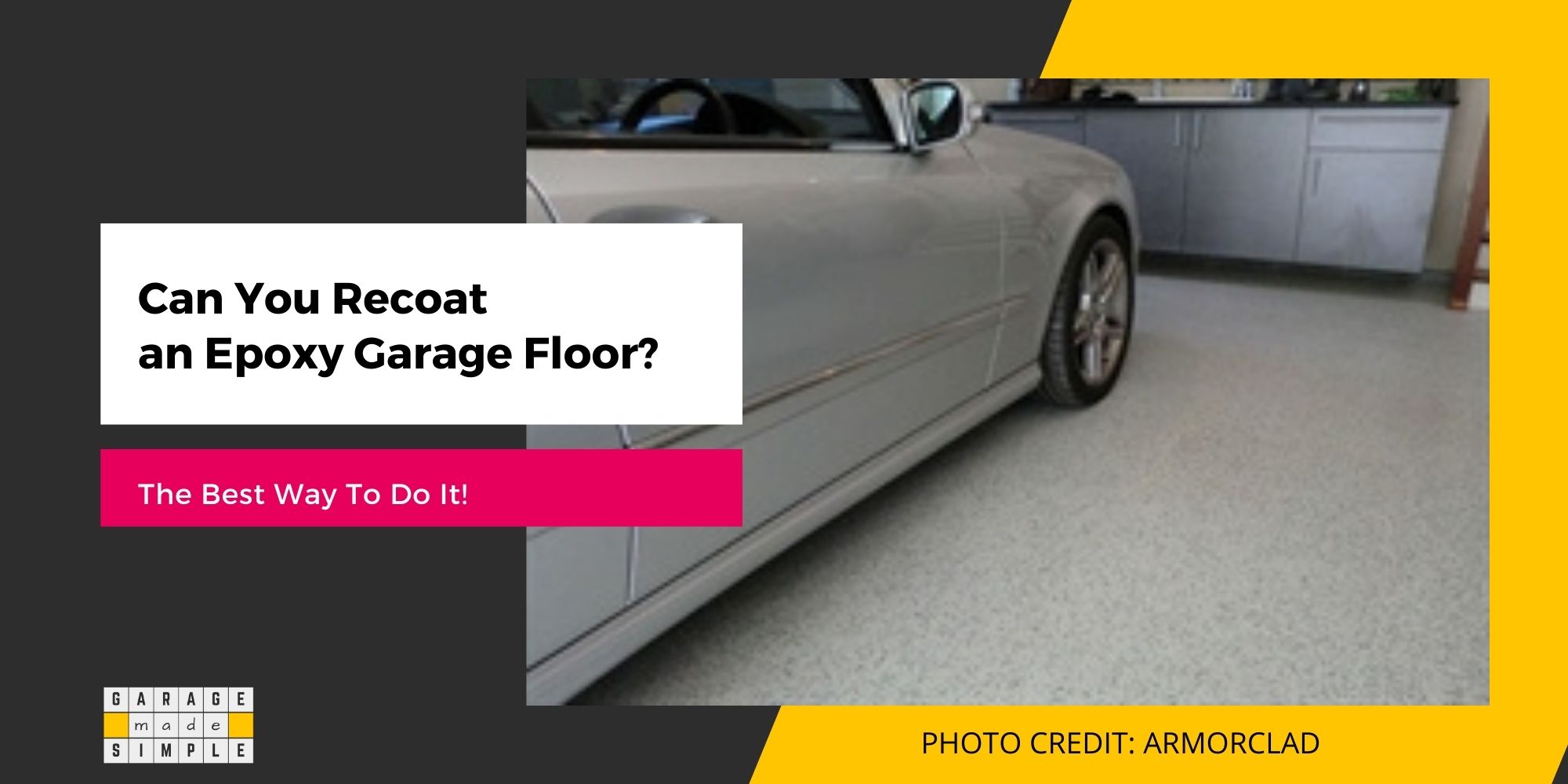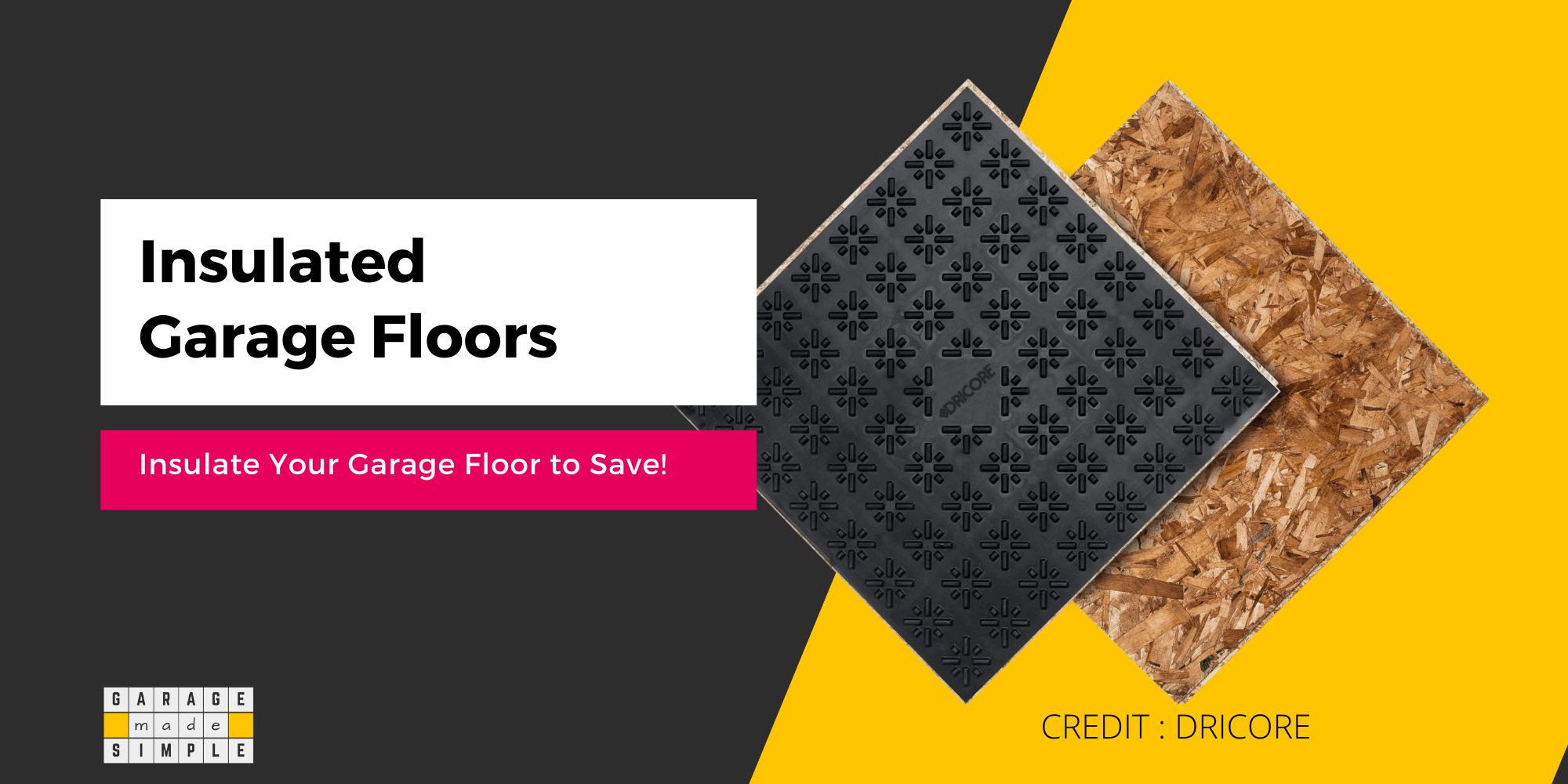Epoxy Concrete Garage Sealer: A Great Option for 2024!
garagemadesimple.com is a participant in the Amazon Services LLC Associates Program, an affiliate advertising program designed to provide a means for sites to earn advertising fees by advertising and linking to Amazon.com . The website is also an affiliate of a few other brands.
What is a Concrete Garage Sealer?
A Concrete Garage Sealer is a protective coating applied directly onto the surface of the concrete garage floor. Unlike penetrating sealers, topical sealers do not penetrate into the pores of the concrete. Instead, topical sealers form a protective film on the surface.
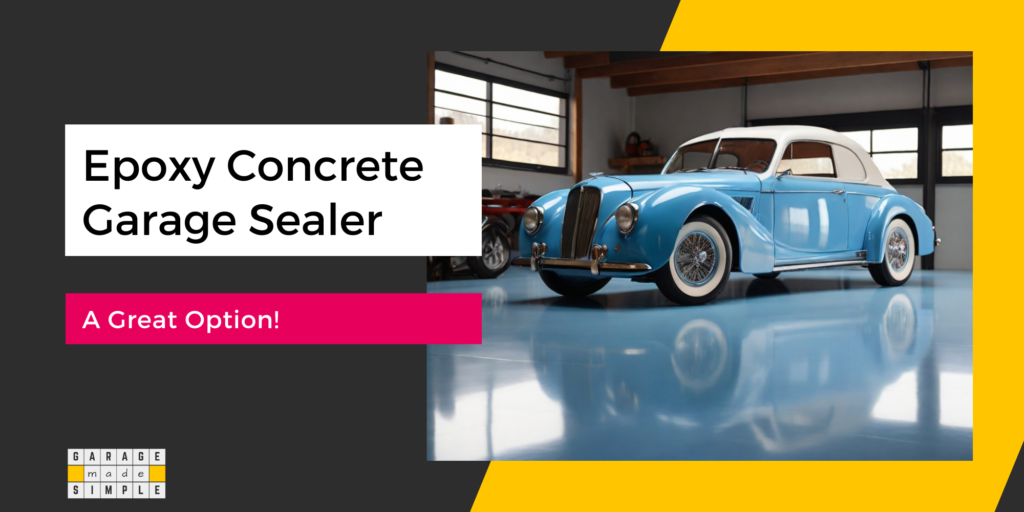
There are 4 types of common topical concrete sealers, namely acrylic, epoxy, polyurethane, and polyaspartic, each offering different levels of protection and aesthetics.
Acrylic concrete sealers are popular for driveways due to their affordability and ease of application. They provide a glossy or matte finish and offer good protection against water, UV rays, and stains.
Epoxy concrete sealers bond effectively with the concrete, providing excellent resistance to chemicals, oil, grease, and heavy traffic. They are ideal for interior concrete slabs such as garage or warehouse floors.
However, they have poor UV resistance and are not suitable for driveways.
Polyurethane concrete sealers offer excellent abrasion resistance and chemical resistance, making them suitable both for exteriors such as driveways & patios and interiors such as garage and warehouse floors. They are highly resistant to abrasion due to heavy traffic and exposure to chemicals.
Polyaspartic concrete sealers are relatively new and have exceptional resistance to UV rays, chemicals, abrasion, and impact.
Polyaspartic sealers will give you a clear, glossy finish and can be applied in a single day, significantly reducing the inconvenience of the sealing process.
In this post I will focus on the Epoxy Concrete Garage Sealer, as that is the most cost-effective and DIY friendly option for you.
Benefits of an Epoxy Concrete Garage Sealer
The key ingredient of an epoxy concrete garage sealer is an epoxy resin. The epoxy concrete garage sealer consists of two parts; a base and a hardener. When the two are mixed together and applied to the garage floor, the sealer forms a strong, durable, and glossy coating:
Epoxy sealers create a protective barrier that shields the concrete surface from stains, chemicals, oil, grease, water, and other substances that can cause damage or deterioration.
Once cured, epoxy sealers form a tough and resilient coating that can withstand heavy foot and vehicle traffic, making them ideal for garage floors.
Epoxy sealers enhance the appearance of concrete surfaces by adding a glossy or satin finish. The looks can be further enhanced by adding stains or decorative flakes.
The smooth, non-porous surface created by epoxy sealers makes garage floors easier to clean and maintain. Spills and stains can be wiped away effortlessly, reducing the need for extensive scrubbing.
Epoxy sealers are resistant to a wide range of chemicals, including automotive fluids like gasoline and motor oil.
When properly applied and maintained, epoxy concrete garage sealers can last for many years, providing long-term protection and enhancing the lifespan of the underlying concrete surface.
Epoxy concrete garage sealers are a cost-effective solution for protecting and enhancing the appearance of garage floors, while also providing durability and ease of maintenance.
How Does Epoxy Concrete Garage Sealer Work?
Epoxy concrete garage sealer works through a chemical reaction between the epoxy resin and a hardener. When these two components are mixed together, they undergo a process called polymerization, which transforms them from a liquid state into a solid, cross-linked polymer structure.
Epoxy Concrete Garage Sealer Application
An epoxy concrete garage sealer is DIY friendly and can be applied by the following step-by-step process:
Step 1. Preparation:
Before applying the epoxy sealer, the concrete surface must be properly cleaned and prepared. Remove any dirt, oil, grease, or other contaminants from the surface and repair cracks or imperfections.
Step 2. Mixing:
Epoxy sealer is supplied as two separate components: the epoxy resin and the hardener. These components must be thoroughly mixed together according to the ratio on the packaging. This ensures that the resin and hardener are evenly distributed so the chemical reaction can take place successfully.
Step 3. Application:
Once mixed, the epoxy sealer is applied to the concrete surface using a roller, brush, or squeegee. It’s important to work quickly and methodically to ensure an even application and to avoid any overlapping or pooling of the epoxy. The mixture also has a pot life and must be applied within that time-frame.
Step 4. Penetration and Bonding:
As the epoxy sealer is applied to the concrete surface, it penetrates into the pores and forms a strong bond with the substrate. This bonding action helps to strengthen the concrete surface and creates a durable coating that is resistant to peeling, chipping, and delamination.
Step 5. Curing:
After application, the epoxy sealer undergoes a curing process, during which it hardens and becomes fully bonded to the concrete substrate. The curing time is dependent on ambient temperature, humidity, and the specific formulation of the epoxy sealer.
You must allow adequate time for the epoxy to cure properly before subjecting the surface to foot traffic or vehicle traffic.
Step 6. Final Finish:
Once the epoxy sealer has cured, it forms a smooth, glossy surface that enhances the appearance of the concrete and provides protection against stains, chemicals, and abrasion.
Recommended Epoxy Concrete Garage Sealer
Rust-Oleum 292514 EpoxyShield Premium Floor Coating Kit, Clear
Ideal for use on interior coated or bare concrete surfaces including garages, basements, workshops and more.
Key Features
- Low odor, low VOC formula
- Ideal for use on interior coated or bare concrete surfaces including garages, basements, workshops and more
- Two part, 100% solids epoxy coating provides excellent adhesion, durability, chemical resistance and resists hot tire pick up
- Heavy duty coating is walk ready in 24 hours, vehicle ready in 72 hours and comes in an easy to use burst pouch that reduces waste
- High-gloss protective finish provides a show room quality floor that lasts
Thank you very much for reading the post. I do hope you found it informative and useful.


